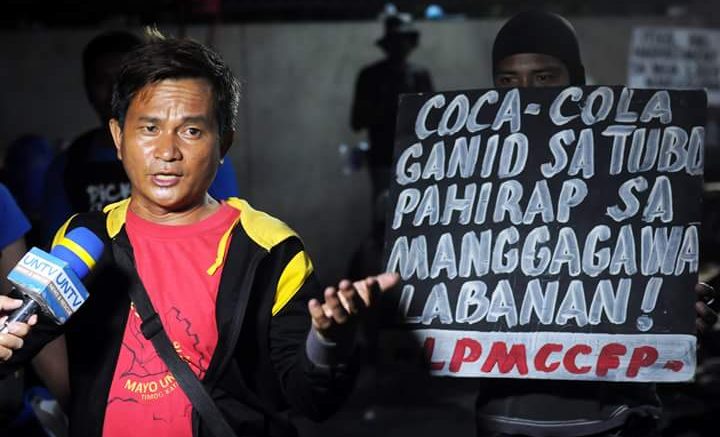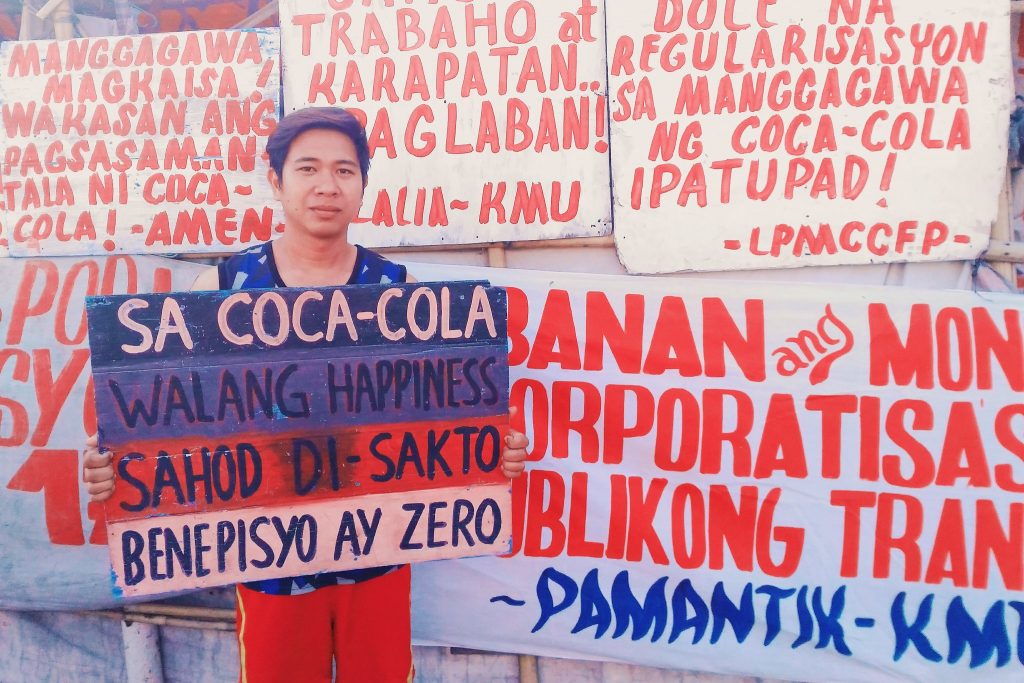A non-governmental labor organization slams the Coca-Cola FEMSA Philippines, Inc. (CCFPI) for committing gross labor rights violations. CCFPI is part of the multinational beverage company Coca-Cola FEMSA, the largest franchise bottlers of Coca-Cola products in the world.
The Ecumenical Institute for Labor Education and Research (EILER) said that Coca-Cola FEMSA has committed gross labor rights violations with its refusal to implement the labor department’s decision released on April last year in favor of the regularization of 675 contractual workers in its Sta. Rosa plant. A total of 140 workers demanding an end to contractualization continue to hold the picket since March 21. Prior to the picket, the company laid off more than 700 employees last month as part of the “organizational structure assessment” due to the Tax Reform for Acceleration and Inclusion (TRAIN) law passed in December.
“The mass layoff by Coca-Cola FEMSA is clearly for the purposes of union busting as twenty four of the laid off employees are union officers, four of whom are presidents. There was no proper negotiation between the company and the trade unions concerning the downsizing of workforce, which is a violation of the free exercise of bargaining rights. We also strongly condemn Coca-Cola FEMSA for its conscious failure to recognize its long-term workers as regular employees, violating their rights to security of tenure, joining the union, and to a living wage,” EILER executive director Rochelle Porras said in a statement on Monday.
The labor NGO stressed that the TRAIN law excuse is dubious. According to EILER, Coca-Cola FEMSA released its statement on the evening of February 6 announcing that it will reduce its workforce based on “recent developments within the beverage industry and the business landscape as a whole.” The statement came barely a month after the tax and price increases took full effect between mid-January and early February. CCFPI director Juan Lorenzo Tañada in a statement on August 2017 has assured the public that the company was working closely with the Department of Trade and Industry (DTI) on possible revenue measures against TRAIN law. The evidence of Coca-Cola FEMSA’s declining sales due to the excise tax on sugary and sweet beverages is therefore lacking and misleading.
EILER said that Coca-Cola FEMSA in 2016 has committed to invest an additional $1 billion up to 2022 in the country, on top of $1.5 billion already invested in 2010-2014. The company reported a total revenue increase of 14.7% and gross profit increase of 15.1% in the end of 2017 driven by increases in Coca-Cola’s price per unit to offset higher sweetener and concentrate prices. Additionally, the consolidation and volume growth of Coca-Cola FEMSA operations in the Philippines has contributed to the year-end results. Even if the TRAIN law imposes a P6/liter tax on beverages using caloric and noncaloric sweeteners and P12/liter on beverages using high fructose corn syrup (HFCS), it is ultimately the consumers who will be burdened with the additional costs.
“To rake in higher profit, Coca-Cola management has been cutting costs by subcontracting its operations and laying off workers despite its strong market performance. President Duterte meanwhile, to please big businesses like Coca-Cola, rejected to sign the anticipated executive order that bans all forms of contractualization. Labor Secretary Silvestre Bello III likewise keeps mum on the issue even when the Coca-Cola workers held a series of workers’ camp outside the department’s building, and the fact that his office has received a copy of the execution order in favor of workers. This cycle of injustice has pushed the Coca-Cola workers to hold a picket and express their legitimate demands,” Porras said.
“We firmly stand in solidarity with the Coca-cola workers. We call on other labor NGOs and human rights advocates to uphold and defend labor rights. We must hold Coca-Cola FEMSA accountable for their violations and their continuing exploitation of our natural resources and cheap labor at the expense of Filipino workers’ wages and job security,” Porras concluded. #


